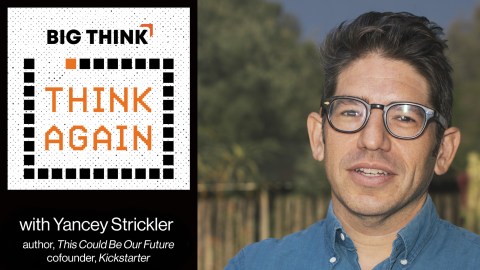Yancey Strickler (Kickstarter co-founder) – you, me, us: now and in the future

The phrase “common sense” can be misleading. The way we use it in casual conversation, it means something like “that which is obvious to any sensible person, of course”. It’s like what philosopher Daniel Dennett says about the word “surely”. Surely we can all agree that it’s just an innocent word, right? Surely I’m not manipulating you by starting this sentence with a positive conclusion? Common sense, in fact, is just what it sounds like: the commonly agreed upon sense of how things are at any given time. But as social primates, we too easily mistake consensus for truth.
My guest today is Yancey Strickler, cofounder of Kickstarter—the company that made “crowdfunding” a common sense idea. That’s a very big deal when you consider that when Kickstarter was getting, uh, kickstarted, that idea made very little sense to anybody at all. Having people chip in to launch something they’ll never own? Ludicrous! Contrary to human nature as explained by Adam Smith!
Having helped transform how creative work is financed, Yancey’s moved on from Kickstarter. His new book: This Could Be Our Future: a Manifesto for a More Generous World is after bigger game—a kind of values reset that moves us away from a narrow, unsustainable, inhumane obsession with profit at all costs. He calls it “bento values” because it’s a box with four compartments: Me and us, now and in the future. Maybe it’s not common sense today, but surely it could be.


